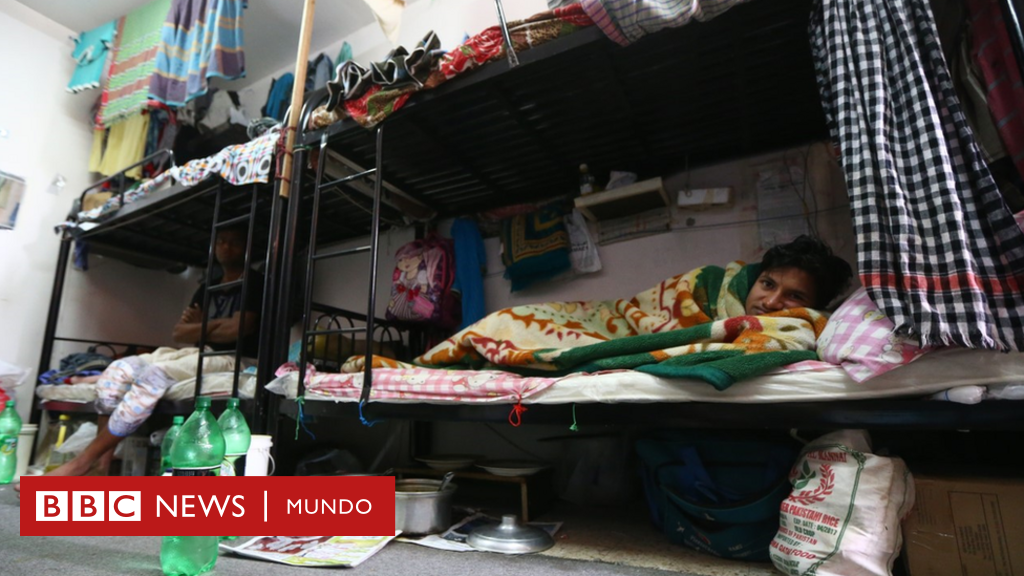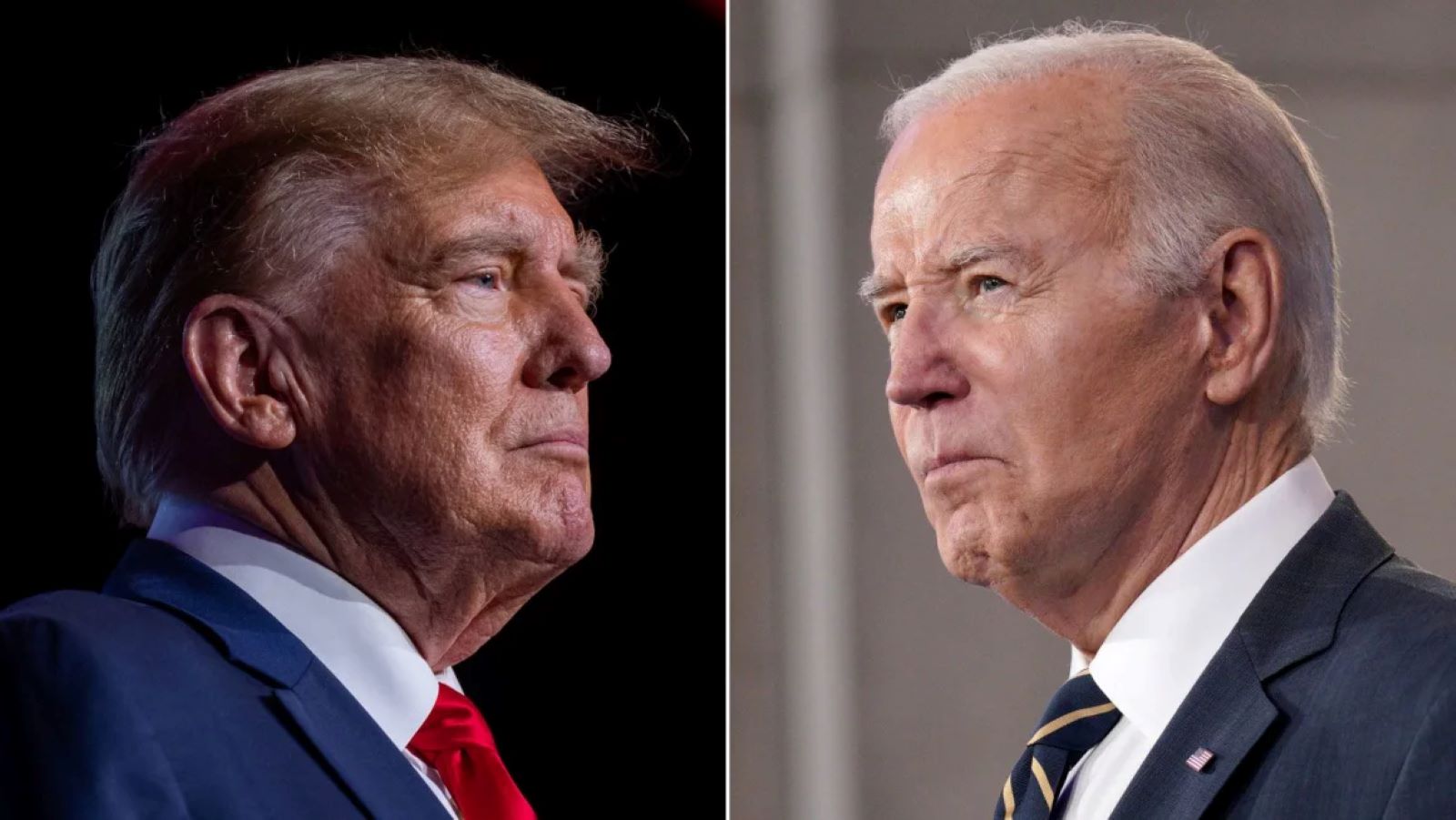World: What is poverty in billionaire Qatar, one of the richest countries in the world

- editing *
- BBC News World
image source, AFP via Getty Images
Poverty particularly affects unskilled foreigners from Southeast Asia.
Seeing and talking about poverty is not easy in Qatar.
A Pakistani taxi driver who preferred to remain anonymous told BBC Mundo that some of those who agree to talk about it choose their words carefully because it is “a complex issue that you have to protect yourself from because the authorities are trying to control it”.
Qatar, one of the richest countries in the world, is not free from poverty. And if it isn’t talked about enough, it’s also because of how well it’s hidden from view.
Part of the foreigners who experience it They live in isolated neighborhoods with poor communicationsAway from the areas frequented by tourists and the masses.
Mainly thanks to oil and gas money, Qatar has a gross domestic product of $180 billion and has attracted hundreds of thousands of immigrants to invest in massive construction in the desert.
Qatar has a population of about three million people. of this total only 350,000 Qataris (10% of the population). The rest are foreigners. Qatari and Western expatriates boast high salaries and great social benefits.
According to official statistics, Qatar has virtually eliminated poverty, although it did exist A different reality for many immigrants from Southeast Asia.
“Many of those who come from countries like India, Nepal, Bangladesh and Pakistan have no qualifications and barely speak English. Although their living standards here are better than in their home countries, An important part is living enoughLow minimum wage and sharing a room with six people to send money home,” says the Pakistani taxi driver.
image source, Reuters
Conditions of construction workers in Qatar have been a controversial issue, despite the state’s insistence on its progress to improve the lives of these workers.
Unequal treatment
In a country where Qataris and Western expats can earn several tens of thousands of dollars a year plus benefits, many unskilled employees are guaranteed salaries of no more than the monthly minimum wage, barely $275.
It became Qatar in 2020 The first Arab country to effectively abolish the controversial sponsorship system (care in Arabic) f The second to determine the minimum wage For all workers regardless of their nationality after Kuwait.
When the kafala system was in effect, if an employee changed jobs without permission, for example, He could face criminal charges, arrest and deportation.
Employers sometimes confiscate their employees’ passports, effectively forcing them to remain in the country indefinitely.
Many immigrants were also required to pay recruitment fees to their employees ranging from $500 to $3,500 before leaving their countries.
To do this, most of them had to resort to Interest loans Which left them in vulnerable positions.
As part of the workers’ rights regulation, Qatar has also enacted a law that allows workers who have completed their contracts to change jobs freely and impose fines on companies that confiscate employees’ passports.
image source, AFP via Getty Images
According to the International Labor Organization, Qatar is underestimating the number of workers killed in the construction of stadiums.
But despite the progress made, organizations such as Human Rights Watch (HRW) insist that “migrant workers are still dependent on their employers to facilitate entry, stay and work in the country, which means that employers are responsible for applying, renewing and canceling their residency and work permits.” .
“Workers can be left without documents through no fault of their own when employers fail to adhere to the aforementioned proceduresThey are them, not their employerswho bear the consequences,” says the 2020 Human Rights Watch report.
Last year, Human Rights Watch noted that foreign workers continued to suffer “illegal and punitive pay cuts” and face “months of unpaid wages for long hours of hard work.”
And according to Amnesty International, companies still pressure workers to stop them from changing jobs.
A spokesman for the Qatari government told the BBC this The reforms implemented by the state are improving working conditions for the majority of foreign workers.
“Significant progress has been made to ensure that reforms are implemented effectively,” the spokesperson said.
“The number of companies breaking the rules will continue to decline as compliance measures are implemented,” he said.
Qatar has built seven World Cup stadiums, as well as a new airport, metro, streets and accommodation.
The final stadium, Lusail Stadium, is located in the city of the same name and has been practically built up in the last five years.
According to the Qatari government, 30,000 foreign workers were hired to build the stadiums. Most of them came from Bangladesh, India, Nepal and the Philippines.
How many of these immigrants have died during the preparations for the World Cup is a controversial and divisive issue.
Funeral in Nepal for a worker who died building stadiums in Qatar.
Based on information from the embassies in Qatar, the British newspaper The Guardian reported that 6,500 workers from India, Pakistan, Nepal, Bangladesh and Sri Lanka have died in Qatar since 2010, when it was awarded the venue for the World Cup.
But Qatar owes such a figure as Misleading and inaccurateBecause not all of these recorded deaths are of workers on World Cup-related projects and many have died of old age or other natural causes.
Qatar says that in its records between 2014 and 2020, there were 37 deaths of stadium construction workers, and that only three of them were “work-related” from the cause.
But the ILO says that figure does not tell the truth, as Qatar does not count deaths from heart attacks or respiratory failure, common symptoms of heatstroke and heavy loads in high temperatures, as work-related.
According to the International Labor Organization, 50 foreign workers died and more than 500 were seriously injured in 2021 aloneWhile 37,600 others sustained mild to moderate injuries.
BBC Arabic has also collected evidence that the Qatari government is downplaying deaths among foreign workers.
After international pressure to treat the stadium workers and as part of measures to improve it, Qatar built Workers’ city (City of Work) and is an area of welcome to many of these immigrants.
But the facility, which has been earmarked hundreds of millions of dollars, is heavily press-restricted here in Qatar and has been criticized for its location, on the outskirts of Doha and far from the luxury seen on television throughout the world. Cup date
*Additional reporting by José Carlos Cueto, BBC News World’s Special Envoy to Qatar.
Remember that You can receive notifications from BBC Mundo. Download and activate the new version of our application in order not to miss our best content.

“Bacon advocate. Certified creator. Twitteraholic. Tv junkie. Beer fanatic. Internet nerd. Passionate thinker. Reader.”




:quality(85)/cloudfront-us-east-1.images.arcpublishing.com/infobae/OF4NJDPGLBEYJAZ5XZMH3OIPJ4.jpg)



